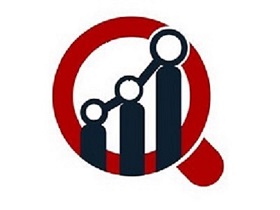Life Science Analytics Market Size Global Gathering and Future Outlook 2020 to 2027
Life science analytics is a tool that helps in clinical
trials standardization and optimization of the drug discovery process.The
growth of the global life science analytics market can be contributed to
growing pressure to curb the healthcare expenditure, need for improved data
standardization, and increasing prevalence of chronic diseases. Furthermore,
the growing adoption of analytics solutions in clinical trials, increasing
adoption of analytics tools for sales & marketing applications, the need for
improved patient outcomes, and rising adoption of big data in the life science
industry are also expected to fuel the market growth during the forecast
period. However, high implementation costs and lack of skilled professionals
have expected to restrain the growth of the global life science analytics
market.
According to MRFR analysis, Life
Science Analytics Market is expected to register a CAGR of 11.91% during
the forecast period of 2019 to 2025 and was valued at USD 19,165.22 Million in
2018.Several market players such as Allscripts Healthcare, LLC, Cerner
Corporation and McKesson Corporation currently dominate the global life science
analytics market. The key players are involved in product launches and
acquisitions to strengthen their market positions. For instance, in January
2018, Allscripts acquired Practice Fusion for USD 100 million. This acquisition
further advance Allscripts’ strategy to offer comprehensive, high performing
health information technologies and solutions.
Request
Free Sample Copy at: https://www.marketresearchfuture.com/sample_request/8570
Key Players
Some of the Key Players in the Global Life Science Analytics
Market are Allscripts Healthcare, LLC (US), Cerner Corporation (US), CitiusTech
Inc. (US), Health Catalyst (US), Inovalon (US), McKesson Corporation (US),
Saama Technologies, Inc. (US), Optum, Inc. (US), SCIOInspire, Corp. (US), SAS
Institute Inc. (US), IBM (US), Oracle (US), and IQVIA (US).
Regional Analysis
The market has been divided, by region, into the Americas,
Europe, Asia-Pacific, and the Middle East & Africa. The Americas region
held the largest market in 2018, owing to the presence of major market players
in the region. The life science analytics market in the Americas has further
been branched into North America and Latin America, with the North American
market divided into the US and Canada. The European life science analytics
market has been categorized as Western Europe and Eastern Europe. The Western
European market has further been classified as Germany, France, the UK, Italy,
Spain, and the rest of Western Europe. The life science analytics market in
Asia-Pacific has been segmented into Japan, China, India, South Korea,
Australia, and the rest of Asia-Pacific. Due to the rapidly developing life
sciences industry, the market in Asia-Pacific is expected to be the
fastest-growing. The life science analytics market in the Middle East &
Africa has been divided into the Middle East and Africa.
Segmentation
The Global Life Science Analytics Market has been segmented
based on the type of analytics, application, component, deployment model, and
end-user.
Based on the type of analytics, the global life science
analytics market has been segmented into predictive analytics, descriptive
analytics, and prescriptive analytics. The descriptive analytics segment held
the largest market share in 2018 owing to its high preferability by the life
science companies, as these solutions help in understanding the past trends.
The global life science analytics market, based on
application, has been segmented into research & development,
pharmacovigilance, regulatory compliance, sales & marketing, and supply
chain optimization. The research & development segment is further
sub-segmented into clinical trials and preclinical trials. The research &
development segment held the largest market share in 2018 owing to the rising
usage in R&D activities for the development of innovative life science
products.
The global life science analytics market has been segmented
based on component, as software, services, and hardware. The software segment
is held the largest market share in 2018 owing to the rising adoption of
analytics software in the life science industry.
The global life science analytics market has been segmented,
on the basis of deployment model, into on-premise and cloud-based. The
on-premise model held the larger market share in 2018 owing to its
user-friendly approach.
The market based on end-user has been segmented into
hospitals & clinics, pharmaceutical, biotechnology & medical device
companies, and others. Hospitals & clinics segment held the largest market
share in 2018 as it helps to minimize the clinical errors and increases
healthcare productivity.
Browse Detailed TOC
with COVID-19 Impact Analysis at: https://www.marketresearchfuture.com/reports/life-science-analytics-market-8570
About Market Research Future:
At Market Research Future (MRFR), we enable our customers to
unravel the complexity of various industries through our Cooked Research Report
(CRR), Half-Cooked Research Reports (HCRR), & Consulting Services. MRFR
team have supreme objective to provide the optimum quality market research and
intelligence services to our clients.
Contact:
Akash Anand
Market Research Future
+1 646 845 9312




Comments
Post a Comment